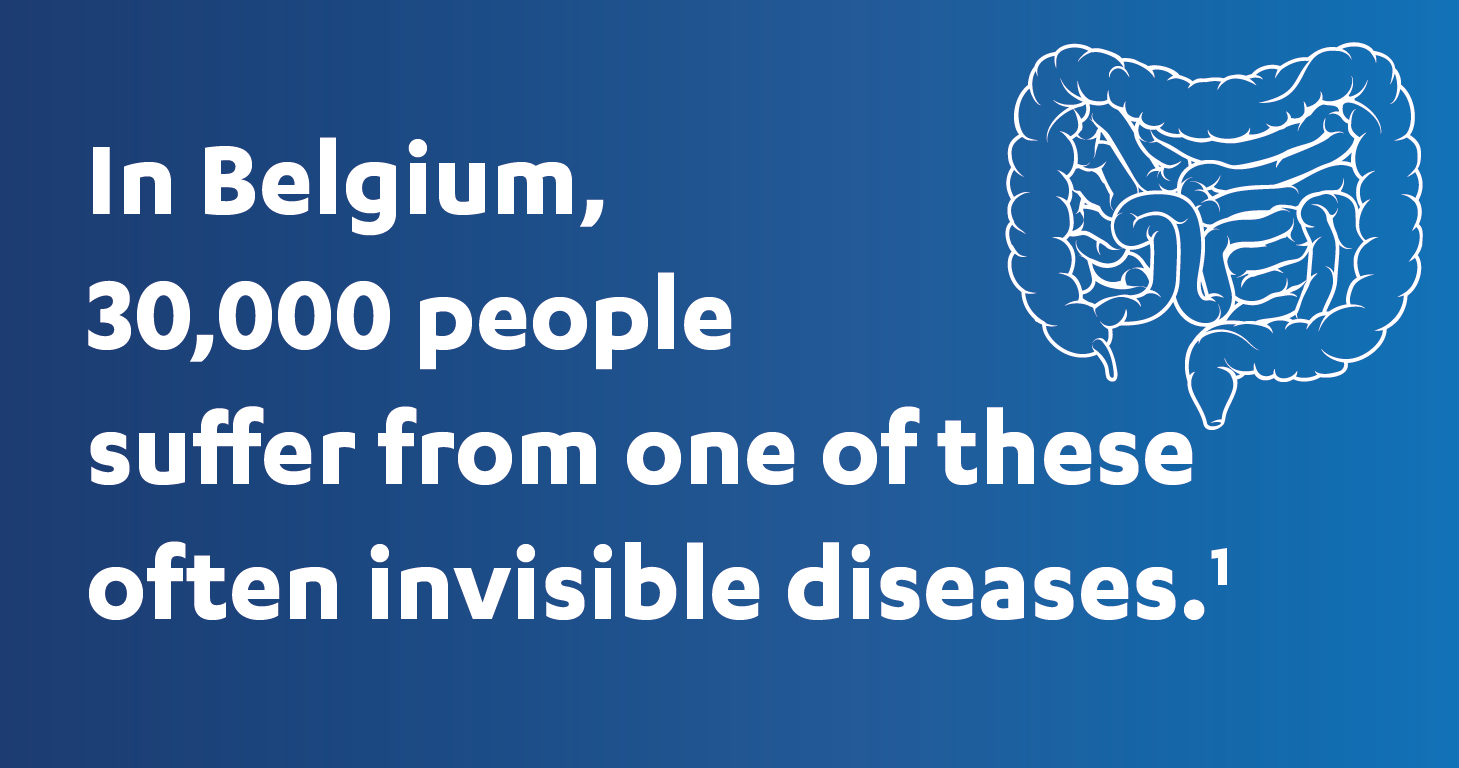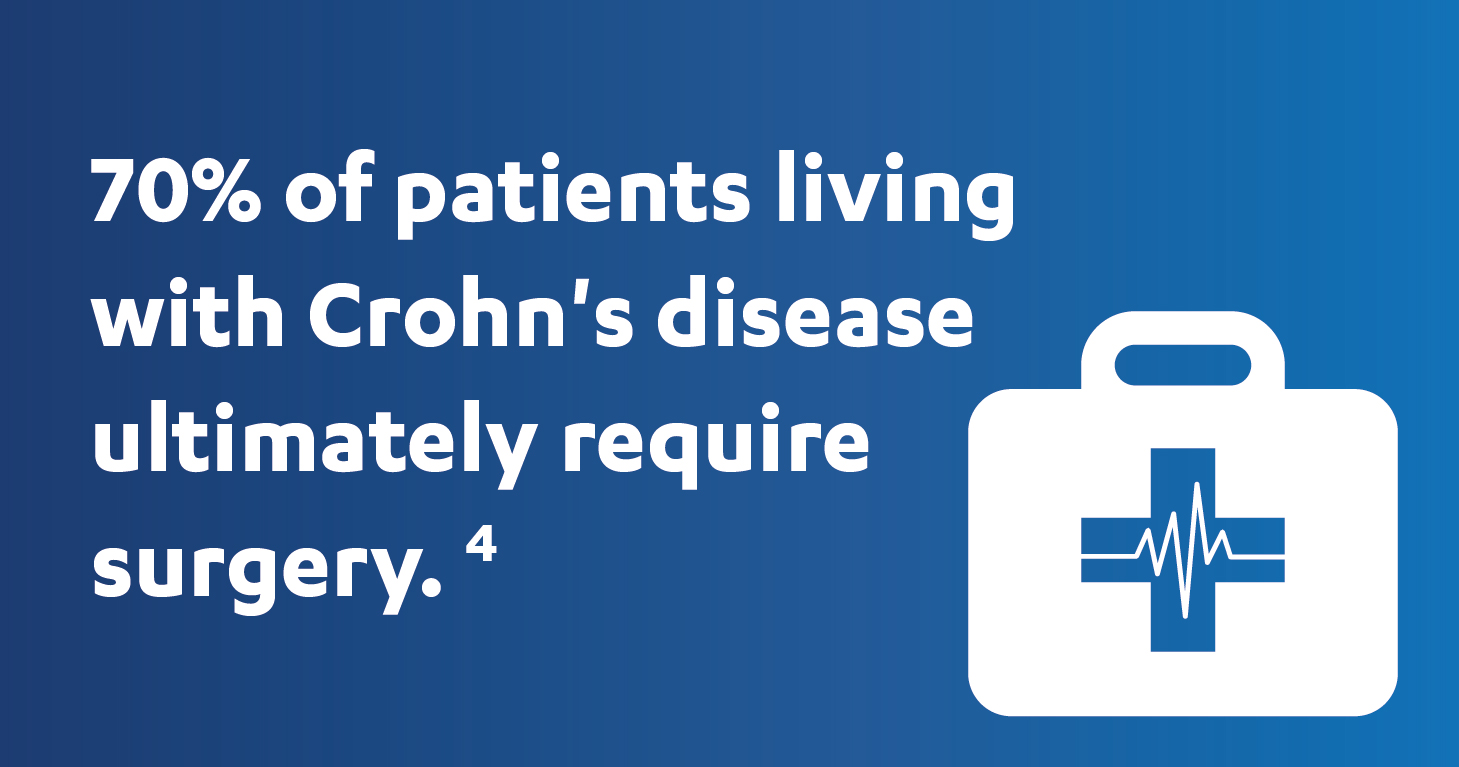IBD
Inflammatory Bowel Disease (IBD)
People who live with an immune-mediated disease suffer from it all their lives. These diseases make the body fight against itself, which can lead to a life of pain and other discomfort. Although current treatments have already made a big difference in the lives of many people, there remains a great need for medicines that work better, faster, and longer. From our area of expertise in immunology, we therefore continue to work on innovative drugs against immune-mediated diseases like psoriasis, rheumatism, and inflammatory bowel disease (IBD), such as ulcerative colitis and Crohn's disease.




Inflammatory bowel disease (IBD)
IBD is a collective term for chronic inflammation of the intestine. The immune system reacts abnormally: it literally fights against itself, resulting in chronic intestinal inflammation. The inflammatory reactions can occur from the mouth to the anus, but in most cases, they manifest themselves in the small or large intestine. Crohn's disease and ulcerative colitis are the most common forms of IBD. Together they affect 30,000 people in Belgium. Every year more than 500 people are newly diagnosed with Crohn's disease and 350 people are newly diagnosed with ulcerative colitis.1
Impact on the lives of people with IBD
The impact of IBD on daily life is different for everyone. People often experience problems for a long time before they are diagnosed with IBD. Common symptoms are intestinal complaints, altered bowel movements, reduced appetite, fever and extreme fatigue. Because the first symptoms of IBD often occur between the ages of fifteen and thirty, these conditions have a major impact, particularly on adolescents and young adults.2,3,4
Undisturbed participation in daily life is not easy for IBD patients. In addition to physical complaints, other challenges arise. For example, you experience difficulties with travelling, you depend on the availability of a toilet, you experience fatigue and have to constantly watch out for what you can eat. Also, people with inflammatory bowel disease are more likely to suffer from mental problems such as stress and depression.5
IBDisappear!
IBD cannot be cured yet, but it can be treated. With innovative treatments we try to change the lives of people with IBD. We continue to look for new ways to treat IBD, hopefully one day cure it and maybe even prevent it. In addition, we want to make the impact of IBD on patients' lives visible. With our 'IBDisappear!' campaign, we show what it could mean for people with IBD if they no longer have to worry about their condition because the disease is completely under control or has actually disappeared. In this way, we will continue to draw attention to this disease until IBD has disappeared!
At Janssen we also make an effort to tackle the prevailing stigma surrounding chronic bowel diseases. In collaboration with the European Federation for Crohn and Colitis Ulcerosa, for example, we have developed videos for patients with IBD to discuss their disease and to help patients deal with it in their daily lives. In addition, we have developed the patient guide 'Living with an inflammatory intestinal disease' together with the Crohn and Colitis ulcerosa association vzw and Association Crohn-RCUH asbl (available in Dutch and French). Around this theme we also developed a podcast series 'IBD and Fatigue'. In this podcast series, patients, nurses, doctors, and researchers discuss the impact of fatigue in context of IBD. With this, we want to offer people with IBD tools to better cope with their fatigue.
More information about Janssen
Read more about our activity in immunology, such as psoriasis and rheumatism, and our other areas of expertise. You can also learn more about Janssen's activities in Belgium and what working at Janssen looks like. You can also follow us via social media on Twitter,Facebook and LinkedIn to stay up to date with current developments.
1 https://www.gezondheid.be/artikel/maag-en-darmziekten/welke-factoren-kun...
2 https://www.crohnsandcolitis.org.uk/about-crohns-and-colitis/publication...
3 https://www.crohnsandcolitis.org.uk/about-crohns-and-colitis/publication...
4 https://www.gezondheid.be/index.cfm?fuseaction=artperrub&t=494
5 Penninga, N. (2009). IBD en vermoeidheid. s.n. (https://www.rug.nl/research/portal/files/14619873/penninga.pdf)
6 https://www.azturnhout.be/sites/default/files/infoland/export/6754b402-d...
